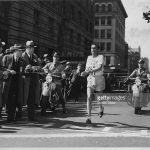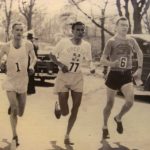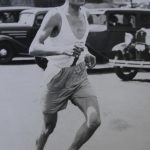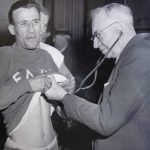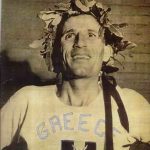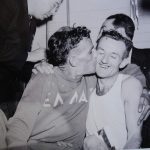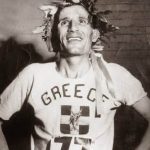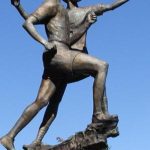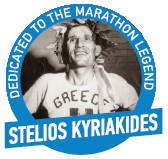A winner of the Boston Marathon who was born in Pafos
Stylianos (Stelios) Kyriakides was born in the mountain village of Statos, near Pafos, in Cyprus on the 15th January, 1910. The youngest of five children, he left home to find work and help his poor farming family.
Following a variety of jobs he ended up as a ‘house-boy’ for Dr Cheverton, a British Medical Officer. An athlete himself, Cheverton encouraged the now 22-year old Kyriakides to start running, gave him his first running gear, coaching advice and taught him to speak English.

The Runner
At his first Pan-Cyprian games in 1932, Kyriakides won both the 1,500 and 10,000 metres on Friday, followed by both the 5,000 and 20,000 metres on Sunday. Hailed as a great talent, he was asked to run in the national championships in Greece, where he came first in the Marathon and second in the 10,000 metres.
He subsequently trained under the Hungarian Otto Simitchek, who was brought to Greece in 1929 to revive the Greek national track and field team. Simitchek created the ‘Greek Dream Team’ of the 1930’s and 1940’s. Although Kyriakides was the youngest in the team, he was chosen by Simitchek to be the team captain, because of his serious approach and honest character.
In 1938 he goes by ship to the US to run the Boston Marathon, at the invitation of Johnny Kelly, who he met in Berlin Olympics (1936), and he is well received by the Greek-American community. He drops out of the race because of blisters in his feet as a result of wearing a new pair of shoes without socks. He promises Jerry Nason, the Boston Globe sports editor, that he will return and win.
The War
Between 1942 and 1944, Kyriakides is part of the Greek resistance, organized by Grigoris Lambrakis, his friend and co-athlete.
During the German occupation they form a group called the “Association of Greek Athletes”. His responsibility is to pass messages to the resistance groups in the north suburbs of Athens, and circulate news from the BBC, from the short-wave radio he keeps hidden at his house.
The Germans don’t search his house, because of who he is, and as a result he is able to hide allied pilots in his basement before they are transported to their forces in Egypt, via the nearby Greek fishing port of Rafina.
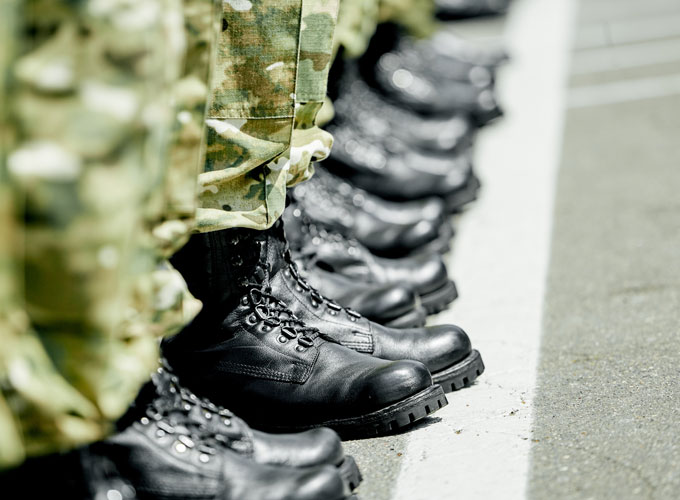
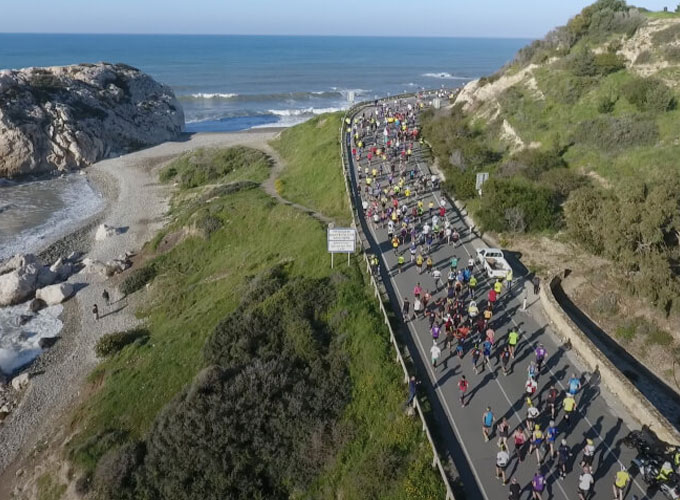
Boston
In 1946, after the war, he decides to run the Boston Marathon again. In order to get there, he has to sell his furniture, enabling him to buy a single ticket. In Boston he runs for charity: for his country. Crossing the finish line in first place, he shouts “For Greece!”. He begs America for its help – and they respond. When he returns to Greece, he goes with American aid (called the “Kyriakides Aid Package”), which is 25,000 tons of supplies, including $250,000 in cash. Over one million Greeks from all over the country line the streets of Athens upon his return. He declines offers to stay in the US to become a professional athlete or a movie star, knowing he has to help the rebuilding of his dilapidated country. He sends a message to the Greek people, still fighting a civil war, to forget their differences and unite for the good of the country.
In 1947, he returns to Boston again, this time to collect money and equipment for the Greek track and field team so they can attend the 1948 London Olympics. He returns with $50,000 and clothing and equipment for the Greek team, enabling them to make it to the Olympics the following year. Aided by the Kyriakides story and accompanied publicity, Greece in 1946/7 is the only country in Europe to receive an advance of $400 million, allocated from the Marshal aid plan (a total of $1.4 billion).
Community Work
In 1952 he starts organizing athletics for youngsters, beginning with in his own neighbourhood of Filothei. Between 1954-56, he helps build the Filothei running track and in 1956 starts the Filothey Athletic Track and Field Club. In 1972 the track becomes only the second stadium in Greece to have a ‘tartan’ surface fitted. The Filothei club, under Kyriakides’ guidance breeds many Greek, Balkan and Mediterranean Champions.
From 1950 to 1980, as a member of the Greek Amateur association, Kyriakides is responsible for organizing both local and international marathons, which see many of the top runners of the time (from Finland, England, Romania, Turkey, Bulgaria, Hungary) come to run. Bekila Abebe, the 1960 and 1964 Olympic champion, runs the race bare footed in 1962, training at the Filothey club in advance to prepare for the race.

Records & Awards
- In 1935, Kyriakides becomes the first long-distance runner to use a hand stop-watch to pace himself. The next significant long distance runner to do the same is in 1982.
- He is among the first to buy books on stretching exercises and also food/ diets/ lifestyle, something unknown for long distance runners of the same era.
- He is also one of the first runners to train via long distance correspondence, with his coach Otto Simitchek, in 1934.
- Kyriakides ran the best time in the world in 1946, 2’29’’27, also a European record. He held the Greek national record for over 36 years and 217 days, one of the longest ever according to the Guinness Book of marathon records.
- In 1962, Kyriakides received the “Cross of the Golden Phoenix”, the highest civilian award given by the Greek state, for his contribution to the country.
- At the Museum of the Marathon (in Marathon) the biggest section is the Kyriakides exhibit, which contains not only his athletic medals, diplomas and victory cups, but also many of his personal items.
- Five documentaries have been made of Kyriakides, including the Emmy award winning 2004 NBC documentary, “Stylianos Kyriakides, the journey of a warrior”.
- Disney is currently making a full feature film about his 1946 epic win.
- His biography book, “Running with Pheidipides”, was written and published in the US, and translated into Greek as “Born a winner”.
- As well as many exhibits about Kyriakides around the world, there are four sculptures in his memory: in Filothey; in the city of Marathon; at the 1-mile mark of the Boston course; and in his birth place in Cyprus.
